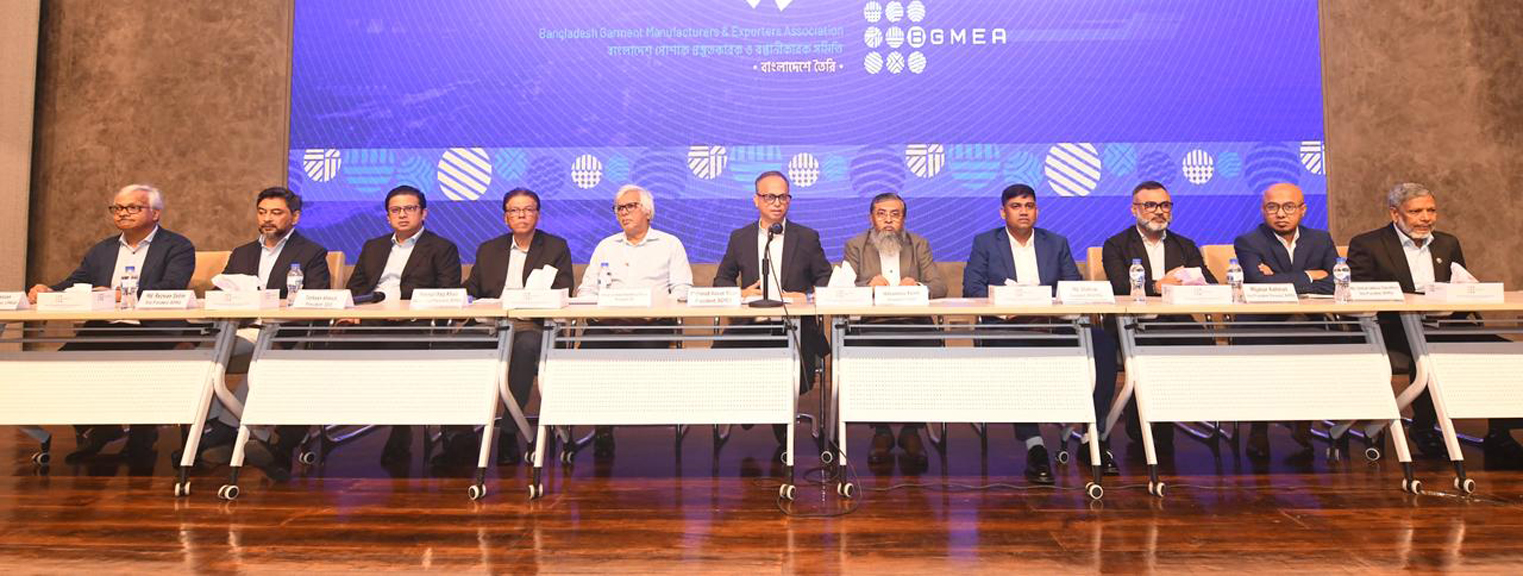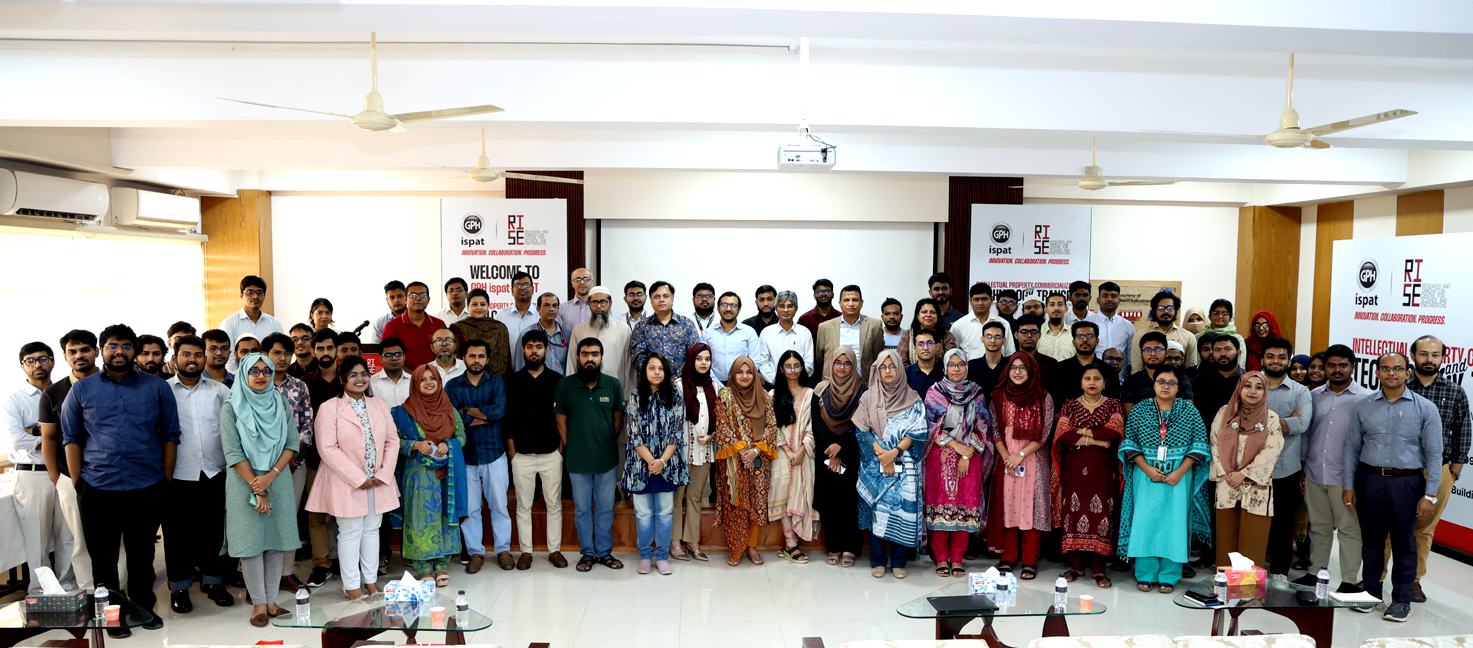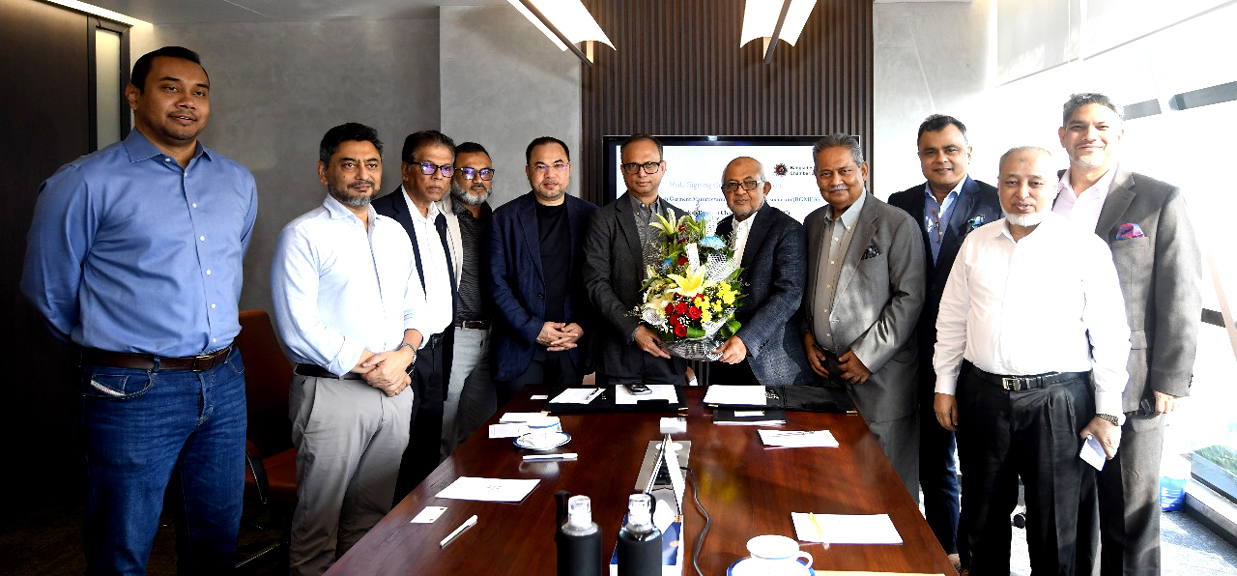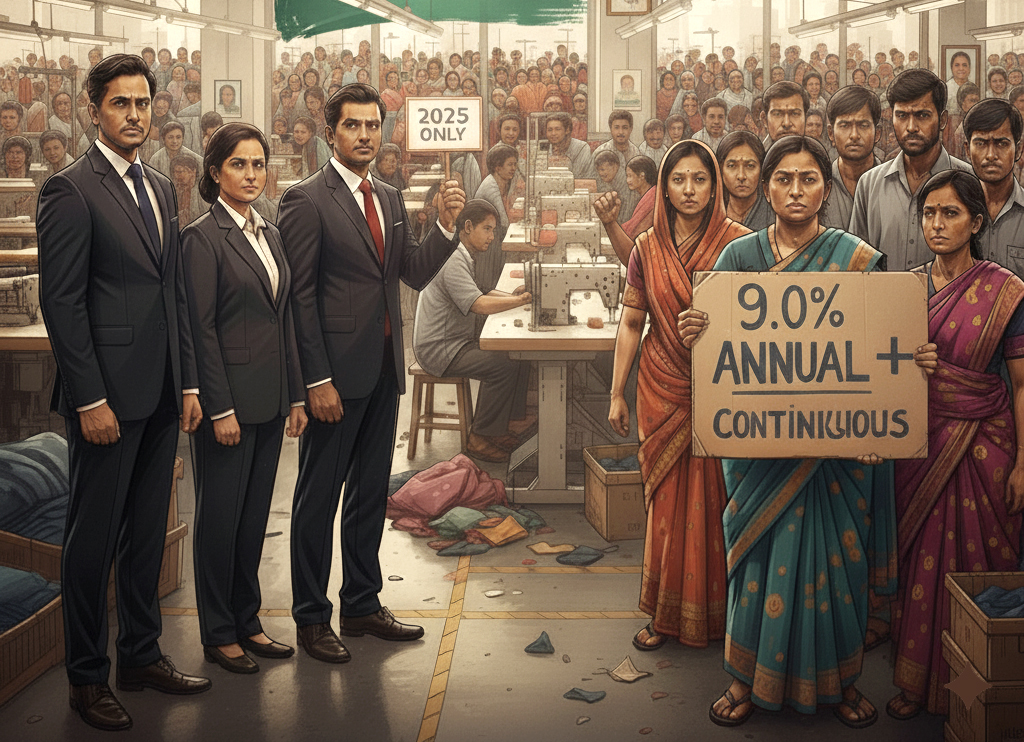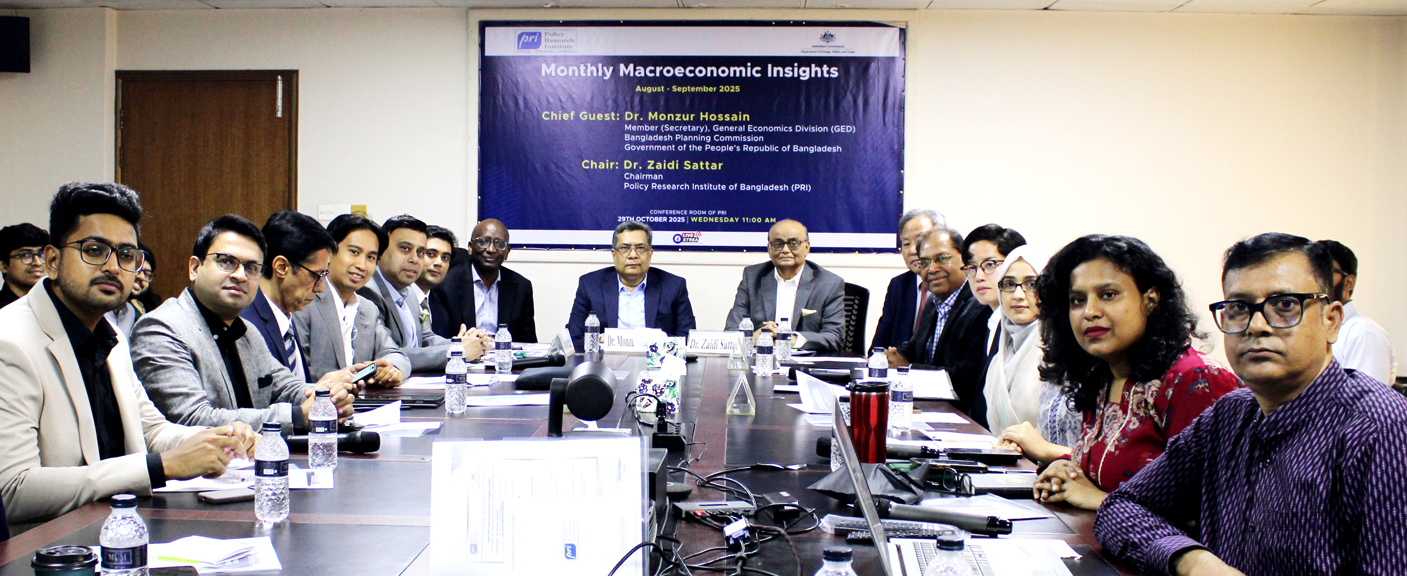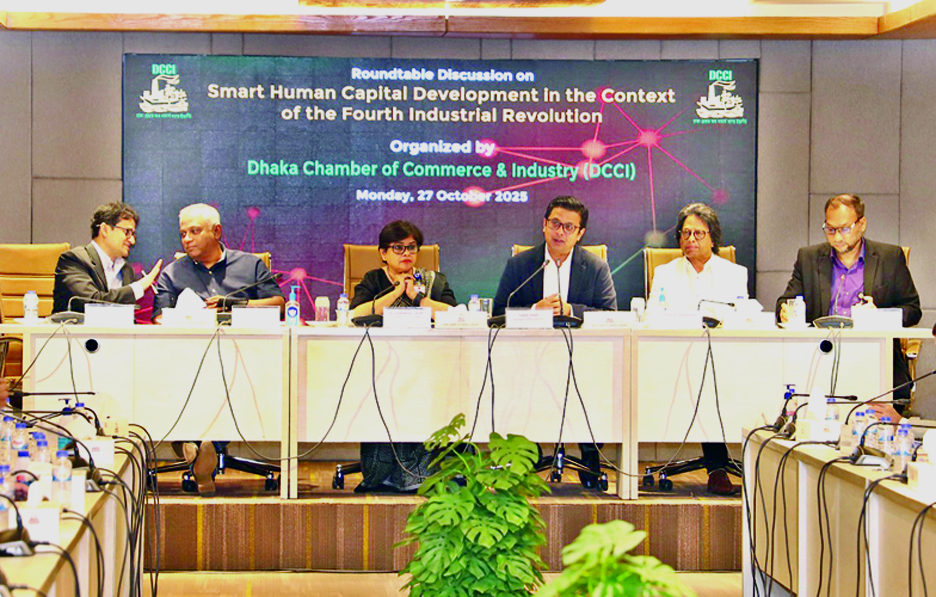Leaders of Bangladesh’s apparel industry on Tuesday called on the government to review the recently approved amendments to the labour law, saying several provisions were finalised without tripartite consensus and could disrupt industrial stability.
They also voiced frustration over their repeated but unsuccessful attempts to meet Chief Adviser Professor Muhammad Yunus to discuss urgent sectoral issues.
‘We have been trying for the past four months to get an appointment with the Chief Adviser, but despite several attempts, we haven’t been given any time,’ said Bangladesh Garment Manufacturers and Exporters Association (BGMEA) President Mahmud Hasan Khan at a press conference held on Tuesday at the association’s headquarters in the capital.
‘If anyone wants to negotiate or raise concerns, they need to talk to the relevant authority,’ he said, adding that the sector expected direct engagement with the government on key policy matters.
BGMEA president pointed out the irony that Starlink, which plans to invest $100 million in Bangladesh, had been granted a meeting with the Chief Adviser, while the $40-billion apparel industry — the country’s largest export earner — had not.
The press conference was organised to highlight the garment industry’s concerns over the proposed amendments to the labour law, particularly the minimum workers’ representation required for trade union registration, issues related to LDC graduation, and the recent hike in Chattogram port charges.
Their demands came after the advisory council last Thursday approved the draft ordinance on labour law, which significantly reduced the required level of workers’ representation — fixing it based on number instead of percentage — in any establishment.
According to the revised draft ordinance, at least 20 workers in any establishment with a workforce ranging from 20 to 300 can apply to form a trade union. The tripartite committee, however, had agreed on requiring 50 workers’ representation in factories or establishments employing 50 to 500 workers.
The ordinance also allowed up to five unions in a single establishment.
Speaking at the conference, the BGMEA president said the latest provisions would allow individuals not directly involved in the industry — such as jhut traders and house renters — to form trade unions.
‘This would create internal conflict, make the industry unstable and obstruct production, which in the end affects both local and foreign investment,’ Mahmud Hasan said.
Business leaders at the event called for the labour law to be made more practical and suitable for industrial operations.
The approved ordinance also permits participation in both the provident fund and the national pension scheme, Pragoti — a provision that, according to the industry, would increase administrative complexity, raise expenditure, and create disorder in managing the schemes.
The sector reiterated the tripartite committee’s recommendation that establishments should be allowed to choose only one of the two schemes.
The industry leaders demanded further revision to the approved Bangladesh Labour (Amendment) Ordinance 2025, taking into account the needs of the industry, workers and the economy, noting that some 258 factories had closed down in the past year.
Criticising the government’s decision to raise tariffs at Chattogram port, they urged a reduction in charges and suggested a phased increase in line with improvements in port efficiency, arguing that higher costs would undermine their global competitiveness.
On the issue of LDC graduation, the BGMEA president called on the government to delay the transition period by at least three years to ensure a more business-friendly environment.
He stressed the importance of resolving the gas crisis, streamlining customs and NBR procedures, improving infrastructure and logistics, and ensuring access to low-cost financing.
Bangladesh Knitwear Manufacturers and Exporters Association (BKMEA) President Mohammad Hatem, Bangladesh Chamber of Industries (BCI) President Anwar-ul-Alam Chowdhury, and Bangladesh Garment Accessories and Packaging Manufacturers and Exporters Association (BGAPMEA) President Mohammad Shahriar, among others, were also present.


